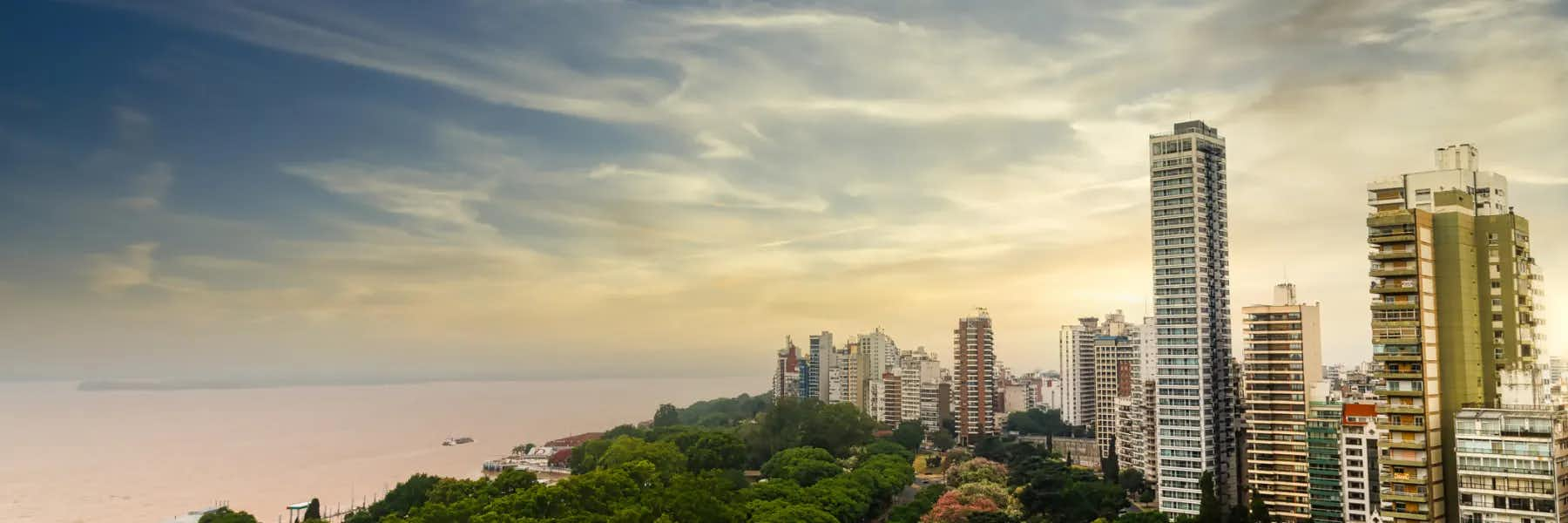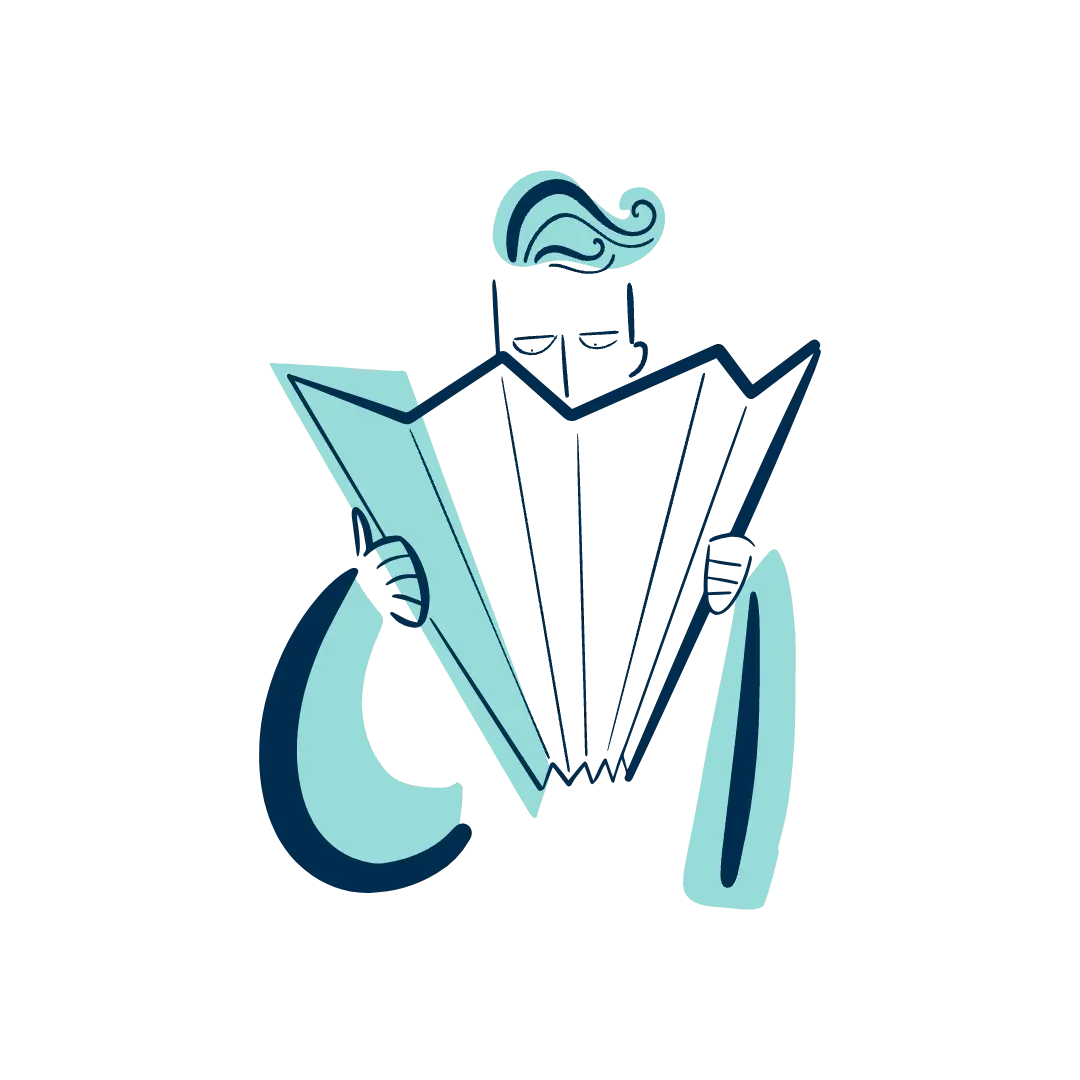The architecture defining properties in Argentina is eclectic. Older buildings in Buenos Aires that would be well at home in any European city sit alongside unappealing highrises built in the '60s, '70s, and '80s…and here and there, newer and less offensive modern structures share the landscape.
The older apartments in Buenos Aires are much bigger than their European counterparts, making the real estate in Argentina much more comfortable than, say, the typical European apartment. For instance, the typical apartment in Buenos Aires is approximately 3,000 square feet, with three bedrooms, two bathrooms, a large kitchen, sitting room, dining room, and maids' quarters.
Magnificent Apartment Properties
Most larger apartments in Argentina have one or two bedrooms and maids' quarters, plus a back entrance with separate stairs and elevator for the maids' use. The per-foot cost of these apartments is one-third to one-tenth that of a similar property in Europe. A 1,000-square-foot apartment, for example, in one of these Argentine properties of character will cost you about $175,000-200,000. All indications are that an investment in an apartment in Buenos Aires is a good one. If you are interested in making an investment in Argentina real estate here, you have two options: You can buy something small…something that would be considered a starter home for a single person or a couple, or you can buy a larger unit--a "classic" apartment in one of the better neighborhoods.
A smaller apartment would make a good long-term rental on the local market, returning about 4-5% (net of everything including the rental management fee) with minimal hassle. The only potential hassle would be an eviction. However, the property laws in Argentina related to eviction of a tenant are similar to those in the United States, and the eviction process isn't overly difficult. There are steps to follow, but it's nothing like Europe, for example, where even the most deadbeat of tenants can be all but impossible to evict.
The World’s Best Retirement Havens for 2025
The World’s Best Retirement Havens for 2025
To get further information on Argentina and more retirement destinations, sign up to receive your free report: 20 Countries Compared, Contrasted, Ranked, and Rated.
You don’t have to be rich to enjoy a pampered retirement, you just need to know where to go.
With our 34th Annual Global Retirement Index, our experts hand you a detailed roadmap. Details and a Special Offer Here!

By submitting your email address, you will receive a free subscription to IL Postcards, The Untourist Daily and special offers from International Living and our affiliates. You can unsubscribe at any time, and we encourage you to read more about our Privacy Policy.
Different Areas of Buenos Aires in Which to Buy Real Estate
In Palermo, a neighborhood in Buenos Aires that attracts lots of expats, real estate prices have fallen less than in other parts of the city, but they're still very reasonable. End houses in the northern suburbs, which are where expats with families tend to navigate, are selling for up to 20% less than before the currency devaluation.
In addition to apartments in the capital, there is also an attractive real estate market right now for houses in the Buenos Aires suburbs to the north. Here, you will find quaint English-style houses built in the 1940s and modern, angular houses of more than 7,000 square feet with four-car garages. These are higher-value investments and, like apartment properties in Buenos Aires, offer long- but probably not short-term rental potential…plus the promise of impressive appreciation in the coming years.
If you are particularly interested in getting into the rental business with your Argentina real estate purchase, you might want to consider one of the northern suburb's gated communities, to either buy a lot and build a home or buy an existing home. Returns in the best gated communities for long-term rentals are currently about 7% per year.
Overall, houses in the northern suburbs rent well on the corporate expat market, especially to families with school-aged children. There is an English-language school nearby, and the feel is more like the North Shore of Chicago than the Third World. There are shops, restaurants, parks, and there's even a commuter train to the city. The cost per square foot for the ready-to-move-into houses ranges from $65 to $93. This is where the wealthy Argentines live, so the houses are big. In other words, although the per-square-foot cost is low, the total cost is not entirely insignificant. Small houses here are around 3,000 square feet and are selling for $250,000 and up. Every house has maids' quarters. Most have back staircases for maids, swimming pools, and parrillas y quinchos--outdoor covered eating areas and brick barbecues.
The real estate in these suburbs undoubtedly has great potential for long-term appreciation (longer-term than the two to three years you might expect for apartments in the city). These are grand houses, built with "real" materials--granite (for the countertops), hardwoods (for the floors and windows), and brick (for the exteriors). Houses of this standard in a major U.S. city would go for at least four times what they are currently listed for in Buenos Aires.
The Argentine Real Estate Market Beyond Buenos Aires
Patagonia is a brand in itself, including Mendoza and its wonderful wine region and Bariloche and the lake region including San Martin de los Andes. Mendoza concentrates the best regions for wineries and vineyard properties, with prices starting as low as $75,000 for a 30- to 40-acre piece of real estate.
A garden city with stunning views of the Andes mountains, it has five trees for every resident and its shady avenues impart a relaxing and tranquil pace. The wonderful climate is due to its location at the foot of the Andes. Mendoza is the fifth-largest wine-producing region in the world--grapevines were first planted by Jesuit missionaries in 1556. Nearly 80% of Argentina's wines are produced here, including Argentina's signature wine, the rich, deep-garnet Malbec, often called Argentina's zinfandel.
Mendoza's San Rafael was settled by Italian and Swiss pioneers. It is the home of Valentin Bianchi, one of Argentina's largest wine producers, which exports to the United States and Europe. Wine enthusiasts are drawn to its sparkling wines and pleasant strolls through the landscaped property.
Bariloche is known as the "St. Moritz of Argentina." Located in the Andean foothills on the southern shore of Lake Nahuel Haupi, Bariloche is surrounded by dense forests, alpine lakes, and 12,000-foot-high mountains. It was founded by German and Austrain settlers and rivals the Swiss Alps for sheer beauty.
The town of 120,000 permanent residents sits on the lakefront and resembles a Swiss village with its wooden façades, mountainous scenery, and cathedral and clock tower in the center of town. Bariloche is popular both winter and summer for outdoor sports, and has very lively nightlife with music, dining, and dancing.
The World’s Best Retirement Havens for 2025
The World’s Best Retirement Havens for 2025
To get further information on Argentina and more retirement destinations, sign up to receive your free report: 20 Countries Compared, Contrasted, Ranked, and Rated.
You don’t have to be rich to enjoy a pampered retirement, you just need to know where to go.
With our 34th Annual Global Retirement Index, our experts hand you a detailed roadmap. Details and a Special Offer Here!

By submitting your email address, you will receive a free subscription to IL Postcards, The Untourist Daily and special offers from International Living and our affiliates. You can unsubscribe at any time, and we encourage you to read more about our Privacy Policy.
If you are considering other Argentina real estate options, then you will be pleased to know that there is some excellent real estate for sale. In the heart of Bariloche, a beautiful 1,700-square-foot Alpine-style chalet with a view of the lake will cost approximately $110,000, and a 3,200-square-foot house near the town center will be about $225,000.
Picture yourself at the head of a fabulous downhill run at the Cerro Catedral ski resort. You're in the clear mountain air, viewing breathtaking scenery and inhaling the intoxicating aromas from the town's many chocolate confectioners. Below are chalet-style houses with brightly painted window boxes.
Skiing starts in May at Cerro Catedral, just 12 miles from Bariloche, but the best time to hit the slopes is July to October. Important international competitions take place at Cerro Catedral, which offers 4,500 acres of ski-able terrain and is South America's first and largest ski resort.
The Arelauquen Golf & Country Club, located just 15 minutes from the center of Bariloche, is a gated lakeside community with an 18-hole golf course. A bungalow here can be purchased for about $130,000 or a quarter-acre lot facing the golf course for $200,000. A pine tree-shaded lot on the shore of Lake Gutierrez will cost $100,000 and up.
The Chapelco Golf & Resort, only 10 minutes from San Martín de los Andes, features an 18-hole golf course co-designed by Jack Nicklaus and Jack Nicklaus II, an international hotel complex, and 432 real estate development lots. On average, lot sizes range from one-third to three-quarter acres, with one as large as 2.75 acres. Prices range from $75,000-200,000 per lot, and monthly membership fees are around $100.
Charming Córdoba is the nation's second largest city and is located near the center of the country. The cosmopolitan city of 1.3 million residents has a historic city center and trendy restaurants and shops all within walking distance. Regarded as a cultural center, Córdoba is home to music and artistic festivals, and numerous small theaters and performance cafés. Property prices in Córdoba are a bit less than properties you will find for sale in Buenos Aires, and the farther you get from the city into the suburbs, the further your dollar will go.
The northeastern part of Argentina is a rural region with small provincial towns and the area is characterized by nature's wonders and God's works: The northwest is a treasure trove of Argentina's colonial Spanish past. The region borders Bolivia and resembles mountainous Andean countries far more than it does the flat and fertile Pampas. It is an area of cobblestone streets and Spanish-tiled plazas, misty river valleys, craggy red rocks, and a significant flute-playing, Quechua-speaking native population.
Beachfront Property Very Close by
The best beachfront property in the area around Buenos Aires is actually not located in Argentina, but rather in Uruguay. Punta del Este, one of the top beach resorts in South America, is one of the favorite oceanfront resorts for Argentine and Brazilian tourists.
Punta del Este boasts an exceptional yacht port, which in high season (December-February) hosts more than 500 yachts and sailing boats from all over the world. Its climate is hot in the summer with lots of sun and a median temperature of 82º F, while in winter the median temperature is 50º F.
Today, Punta del Este has a permanent population of 8,000 inhabitants, and receives more than 200,000 tourists during the summer months that arrive by either private yachts, private planes, ferries, or regular airlines. It also has an international airport. Punta del Este is unrivaled for its beauty, good taste, good eating, and good living.
And Punta del Este has the best seaside lifestyle in South America, with a very busy high season, where you can get a 5-7% return on a rental property in just two months (January and February). Then you have the property to enjoy the rest of the year.
The World’s Best Retirement Havens for 2025
The World’s Best Retirement Havens for 2025
To get further information on Argentina and more retirement destinations, sign up to receive your free report: 20 Countries Compared, Contrasted, Ranked, and Rated.
You don’t have to be rich to enjoy a pampered retirement, you just need to know where to go.
With our 34th Annual Global Retirement Index, our experts hand you a detailed roadmap. Details and a Special Offer Here!

By submitting your email address, you will receive a free subscription to IL Postcards, The Untourist Daily and special offers from International Living and our affiliates. You can unsubscribe at any time, and we encourage you to read more about our Privacy Policy.












